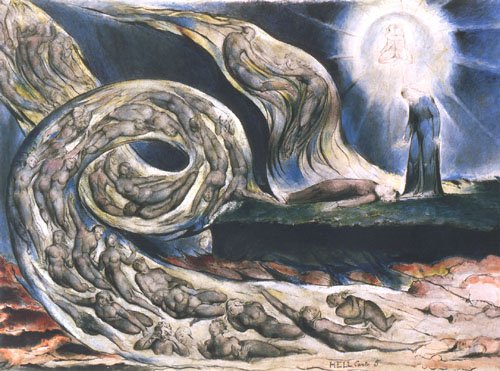non fides
Wednesday, March 16, 2011
The uprisings in Tunisia and Egypt seem to be inspiring insurgents in many other countries. From Algeria to Bahrain, Iran, Libya, Yemen and Syria, many people are taking to the streets to launch strikes at the workplace, clash with police, pass to looting and the burning of buildings of State and economic power. It is a wind of revolt that is blowing across these countries, it is a wind that gives courage, a wind that carries the message that no regime, no matter how authoritarian it is, is unassailable. No poverty, no oppression is ever safe from a devastating social tempest.
We can not predict in which direction these storms will go, but what is certain is that at such insurrectional moments everything comes out in the open. Contradictions erupt before everyone's eyes, and a regime that collapses shows that oppression routed may conceal another.
Some insurgents may well think that salvation will come from a democratic regime, even if in turn it will perpetuate social inequality and exploitation. Others believe that the time has come to wield national flags, forgetting that the poor will never have a homeland, unaware that nationalism always leads to killings, internment camps for the "others", and endless wars. Still others may want to establish an Islamic regime, subjecting everyone to the fierce sharia, suffocating freedom in an even more insidious way than the current authoritarian regimes.
But that's not all. For many people rebel simply because they have had enough. Enough of being oppressed and silenced, sick of being poor and at the mercy of the bosses, tired of living in miserable conditions, without happiness or dream. This "no" is certainly just a start but it's a no that paves the way, perhaps also, as one can already read in some accounts of insurgents, of experimentation of a kind that is different to democracy, religion, nationalism and money. Experimentation with forms of self-organization among the people involved far beyond the State, of solidarity and mutual aid among people away from all exploitation, of liberation from fixed or imposed social roles. That is what frightens the powerful, but also those who aspire to become so: that the insurgents are experimenting and becoming aware that they have no need for the powerful, old or new, corrupt or "honest" dictatorial or "elected". That all power, all bosses will always prevent them from living a free life, from organizing freely among themselves. It is this spectre of freedom, showing its beauty and possibility in these moments of rebellion, which scares all those who want to retain or grab power.
Now, let us also welcome the spectre of freedom, let's destroy the mental boundaries between here and there that we built in our heads. Let's dare to cry loud and clear that we have no country, we do not want any government at all. That we will drive out not only the ambassadors of these Arab countries in ferment from their villas in Brussels, but we will also also chase all politicians and all bosses off their seats. And not to take them in turn, but to destroy them forever. The best support, the best solidarity with the insurgents in the Arab world, is to pave the way for the liberating rebellion.
-------------------------------------------------- ------------------------------
The courts in flames
During the uprising in Tunisia, 14 courts have been burned by the insurgents. Also many prisons are still out of use after the attacks and riots. The new order is beginning to establish itself in Tunisia, even if it must face tenacious resistance in the streets (protests, riots and attacks against banks, police stations, supermarkets, governments continue while "the new police" do not hesitate to shoot rioters). A key concern of the Minister of the Interior is obviously to restore the repressive apparatus. He "is counting for that on the financial assistance of the European Union" which certainly does not refuse to support another State seeking to give itself the means to subjugate the population. In addition, the Minister has rehabilitated all the judges of the regime of Ben Ali, who have since resumed their posts.
The barricades are leading the way
In Algeria, one of the most intense points of the rioting in course is in the town of Akbou. The spark was the decision of the prefect of police to evict the 495 housing units, occupied since early January by many families. They did not let them do it and opposed rocks, barricades and petrol bombs at police. Currently, the housing is still occupied and despite appeals for calm from the "sages of the community" the riots continue and are spreading to more areas of the city. Several banks, a police station and employment office have been ransacked or torched by insurgents. Barricades have been erected on the important road RN26A linking Vgayet and Tizi-Ouzou, thereby blocking economic traffic, a widespread practice elsewhere in the rest of the country (Naciria, El Harrouch, Sidi Amar, Bordj Menaïel, Tazmalt). The barricades almost always lead to serious clashes between insurgents and security forces, which then continue in the neighbourhoods. Thus, the insurgents are able to remove the monopoly of space from law enforcement, choosing their battlefields themselves, pushing the trap of being caught in a clash in central ground fertile for law enforcement.
Democracy or not, it's time to revolt
In southern Iraq, in different towns, hundreds of demonstrators took to the streets to protest against the miserable living conditions. The events have all ended in clashes with the security forces of the "young democracy" established after the invasion of Western troops. In addition, many government buildings have been delivered to the flames. For some time, the tension towards social struggle (strikes in factories, demonstrations not controlled by either the state or by the Islamists, ...) is beginning to regain strength in Iraq, a country torn by military occupation, a police democracy and a war waged by Islamists in part against the occupation but also against the Iraqi people to impose Islam. The state has tried to buy the angry protesters, promising them a certain amount of watts of electricity free annually.
Where people rise up, the shadow of authority goes down
In Libya, despite the attempts by the Gaddafi regime to immediately and brutally suppress the rebellion, the situation has become particularly tense in the cities of Al-Baida and Benghazi. There, armed clashes between police and insurgents left dozens dead. Also, militias in the pay of the regime are vainly trying to crush any attempt at revolt with terror. In the prison of Benghazi, in parallel with the fighting in the street, a mutiny broke out, allowing not only the destruction of a large part of the prison but also the escape of many prisoners. Many of these prisoners joined the insurgents in the burning of several buildings of power, including the building of the Attorney-General, a police station, several banks and offices of the Police. Meanwhile, at the time of publication of this issue, the uprising has embraced the whole country, pitting a variety of armed insurgents against Gaddafi's police and militias.
[Excerpt from Hors Service No. 14]
Subscribe to:
Post Comments (Atom)

















No comments:
Post a Comment